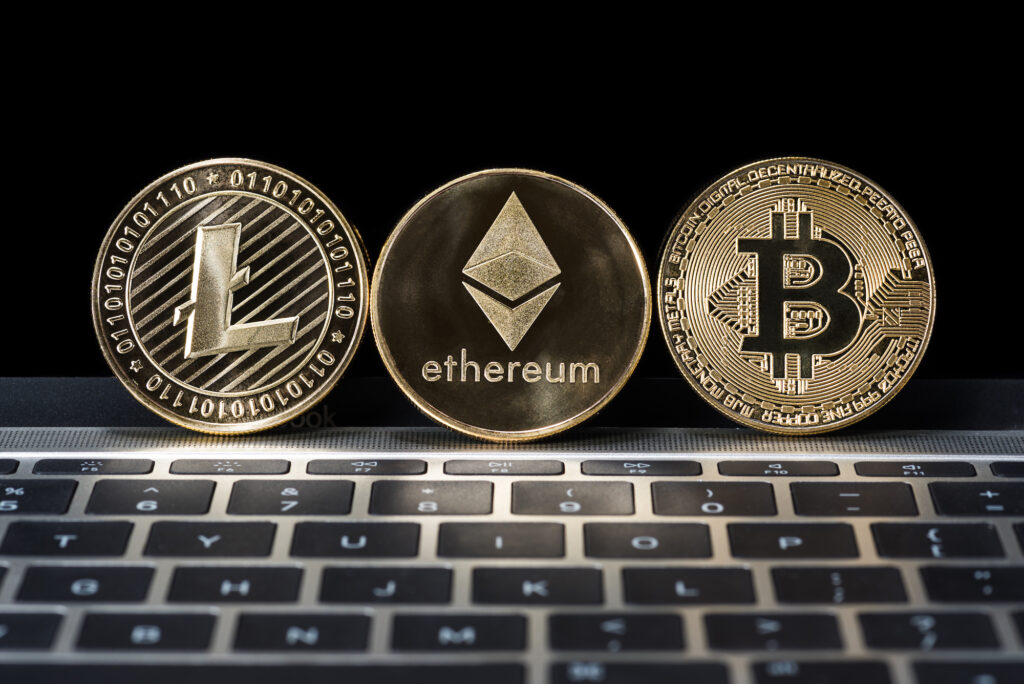As the world of digital currencies expands, three names consistently dominate the conversation: Bitcoin, Ethereum, and Litecoin. While each offers unique benefits and characteristics, choosing between them can be challenging, especially for newcomers to the crypto space. In this article, we’ll dive into a detailed comparison of these three giants—Bitcoin, Ethereum, and Litecoin—exploring their core differences, use cases, and what sets them apart in the rapidly evolving world of cryptocurrencies.
The Origins: How Bitcoin, Ethereum, and Litecoin Began
Bitcoin (BTC), launched in 2009 by the mysterious figure known as Satoshi Nakamoto, is widely regarded as the first cryptocurrency. It was created to offer a decentralized, peer-to-peer alternative to traditional currencies, removing intermediaries such as banks from financial transactions. With a fixed supply of 21 million coins, Bitcoin’s value is rooted in its scarcity and its ability to serve as “digital gold.”
Ethereum (ETH), introduced in 2015 by Vitalik Buterin, took Bitcoin’s blockchain concept further. While Bitcoin was designed primarily as a currency, Ethereum brought something new to the table—smart contracts. These self-executing contracts allow decentralized applications (dApps) to be built on the Ethereum network, opening the door to everything from decentralized finance (DeFi) to NFTs (non-fungible tokens). This innovation made Ethereum more than just a currency; it became a platform for a vast array of blockchain applications.

Litecoin (LTC) was launched in 2011 by Charlie Lee as a “lighter” version of Bitcoin. It aimed to improve Bitcoin’s model by offering faster transaction speeds and lower fees. Often referred to as the “silver to Bitcoin’s gold,” Litecoin has maintained its position as a popular alternative for everyday transactions due to its quicker processing times.
Key Differences in Technology and Transaction Speed
When it comes to technology, Bitcoin, Ethereum, and Litecoin all rely on blockchain, but they differ in terms of how they function. Here’s a comparison of their core features:
| Cryptocurrency | Launch Year | Consensus Mechanism | Block Time | Average Transaction Fee |
|---|---|---|---|---|
| Bitcoin (BTC) | 2009 | Proof of Work | 10 minutes | $1.50 |
| Ethereum (ETH) | 2015 | Proof of Stake (upcoming) | 15 seconds | $2.00 – $10.00 |
| Litecoin (LTC) | 2011 | Proof of Work | 2.5 minutes | $0.05 – $0.20 |
- Bitcoin uses a proof-of-work consensus mechanism, which secures the network but can result in slower transaction times. The average block time for Bitcoin is around 10 minutes, making it less suitable for fast payments in comparison to its rivals.
- Ethereum, while also using proof-of-work initially, is in the process of transitioning to proof-of-stake with its Ethereum 2.0 upgrade. This change aims to reduce energy consumption, improve scalability, and speed up transaction times. Ethereum’s block time is much faster than Bitcoin’s, averaging around 15 seconds. This quicker processing allows Ethereum to support a wide range of decentralized applications, but it also leads to higher gas fees, which can fluctuate during periods of high network demand.
- Litecoin, designed to improve Bitcoin’s shortcomings, features a block time of just 2.5 minutes. This makes transactions significantly faster and cheaper than Bitcoin’s, although it lacks the extensive ecosystem of Ethereum. As a result, Litecoin is favored for smaller, day-to-day transactions but doesn’t offer the same programmability that Ethereum provides.
Use Cases and Adoption: Where Do Bitcoin, Ethereum, and Litecoin Fit?

Use Cases
- Bitcoin: Predominantly seen as a store of value, often compared to gold. It is increasingly being accepted by institutions as a legitimate asset class. However, due to its slower transaction speed, Bitcoin is not as widely used for everyday payments.
- Ethereum: The backbone of the decentralized finance (DeFi) world. Ethereum supports an entire ecosystem of financial services, applications, and even digital art in the form of NFTs. Its smart contract functionality makes it the go-to platform for developers looking to create decentralized solutions.
- Litecoin: With its faster transaction speeds and lower fees, Litecoin is commonly used as a medium of exchange. Its simplicity and efficiency make it a popular choice for everyday transactions and cross-border payments. Many merchants accept Litecoin due to its reliability and lower costs, particularly in comparison to Bitcoin.
Adoption Overview
| Cryptocurrency | Primary Use Cases | Adoption Rate |
|---|---|---|
| Bitcoin (BTC) | Store of value, institutional investment | High |
| Ethereum (ETH) | Decentralized applications, DeFi, NFTs | Very High |
| Litecoin (LTC) | Everyday transactions, peer-to-peer payments | Moderate to High |
Bitcoin, Ethereum, and Litecoin each have their strengths and unique use cases. Bitcoin excels as a store of value and a long-term investment, while Ethereum is the backbone of decentralized applications and the smart contract revolution. Litecoin offers an efficient solution for fast and affordable transactions.
Your choice between these three giants depends on your needs. If you’re looking to hold a long-term investment, Bitcoin’s scarcity makes it appealing. If you’re interested in decentralized finance or blockchain-based applications, Ethereum is the clear choice. For those seeking a fast and cost-effective cryptocurrency for everyday use, Litecoin may be the best option. Each of these cryptocurrencies plays a distinct role in the ecosystem, making them all valuable in their own right.
Useful Resources
Litecoin.com – Official Litecoin site with resources and news updates.
CoinMarketCap – For real-time cryptocurrency prices and market capitalization.
Ethereum.org – Official website for Ethereum, providing information on dApps and smart contracts.

